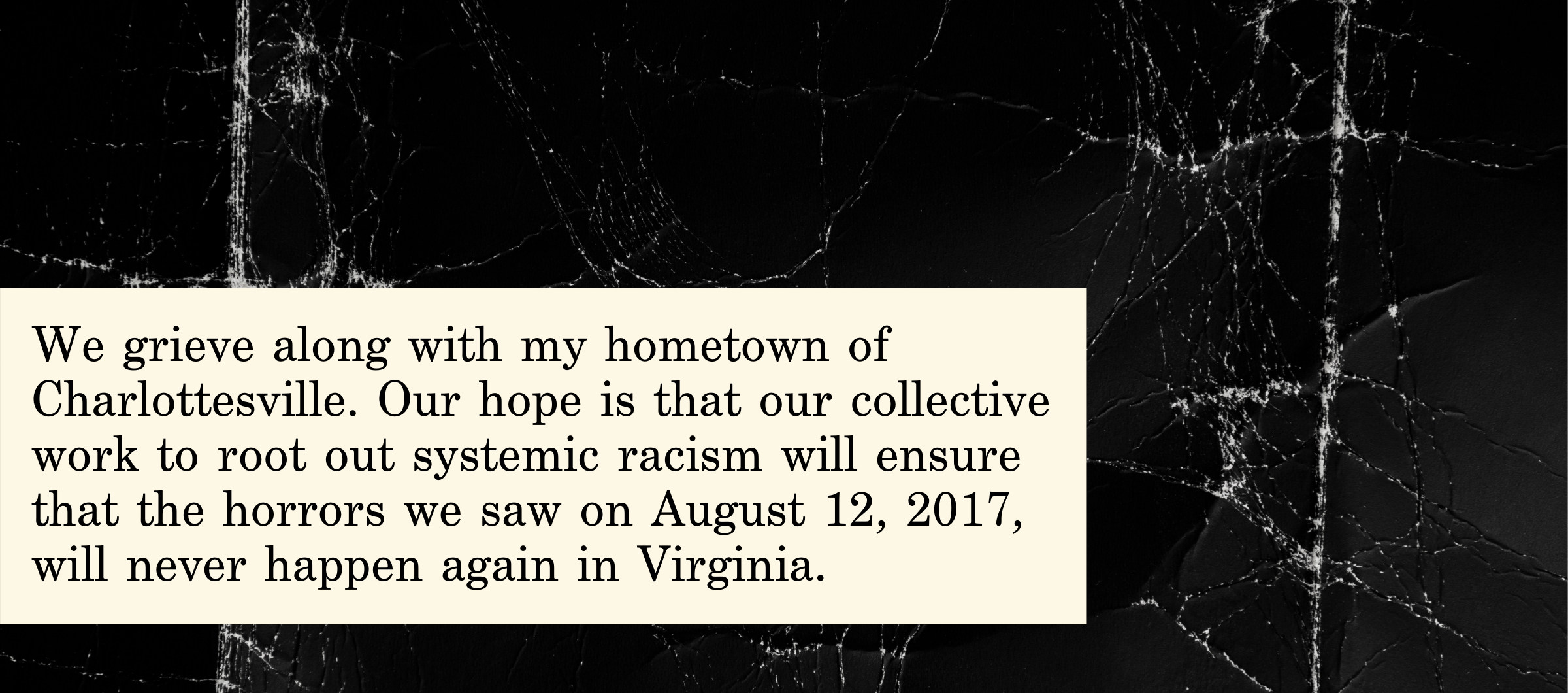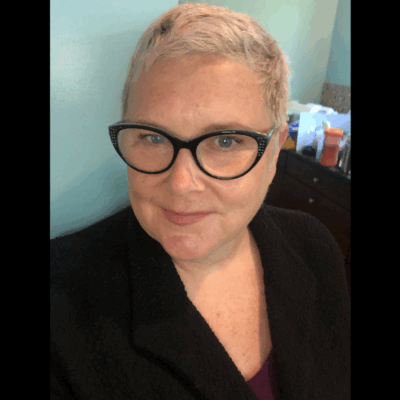The last 18 months have brought enormous challenges—and some real opportunities for change—for all of us. We have lived through a pandemic that has taken the lives of hundreds of thousands of Americans, and many more worldwide. We lived through a contentious election season that culminated in a violent attack on our Capitol and on our very democracy. We also saw uprisings where people of all races, all ages, all backgrounds and abilities took to the streets to say “enough is enough” to old systems of white supremacy. Just recently, in Charlottesville, my home, we saw the removal of the Confederate statues that had stood for a century in the center of the city, sending their message about who belonged there and who did not. Earlier this year, we saw some real and important changes in our laws, with the abolition of the death penalty and the legalization of marijuana. Each of these events push us to consider what is important in our lives, in our communities, and in the Commonwealth.
On the anniversary of the Unite the Right march in Charlottesville, which resulted in the death of Heather Heyer and two police officers and serious injuries to many others, we reaffirm our commitment to the fight for racial justice.
We believe that the best way to honor the people hurt that day is to continue to deepen our dedication to eliminating systemic racism.
It is our strong belief that a commitment to the principles of free speech and racial justice can coexist. While we continue to center free speech and acknowledge that our analysis of our work moving forward must consider the likelihood of violence. After the Unite the Right march and the January 6 insurrection, we must be clear-eyed about the potential for violence by organizers of such events, and we must be sure that we are not facilitating violence. While we stand committed to the principle of free speech for all that principle does not include real-world harm.
And so, on this solemn day, we re-dedicate ourselves to the mission of eliminating systemic racism. While that is a tall order, we have identified several priorities that we believe will have the greatest impact in eliminating systemic racism:
Reimagining Policing
For too long, Black and Brown communities have been over-policed and over-criminalized. Building safe communities starts with serving people, not criminalizing, harming, and killing them. It’s time to move away from the punitive public safety model that relies heavily on police and prisons and move toward a system that brings in the right people at the right time to save lives, address systemic inequities, and rebuild communities.
People Not Prisons
According to the Prison Policy Initiative, Virginia has an incarceration rate of 779 per 100,000 people (including prisons, jails, immigration detention, and juvenile justice facilities), meaning that it locks up a higher percentage of its people than many states. Incarceration should be used only as a last resort and a means of rehabilitation, not punishment. The ACLU of Virginia is committed to ending racial disparities in prisons and drastically reducing the prison population.
Right to Vote Amendment
In 2020, Virginia took the first step toward passing an amendment that guarantees in the Constitution the right to vote to every citizen 18 years of age or older. But there are more steps to take. We believe the most important equalizer is access to the ballot. If passed, the amendment will automatically restore the right to vote to more than 400,000 people with felony convictions who are not currently incarcerated, the majority of whom are Black. This amendment will remove Jim Crow-era laws from our Constitution while protecting recent laws that have already expanded access to the ballot box.
We’ve also made a commitment to hire a group of community organizers who will go out and work alongside long-time community advocates. People with lived experiences in these issues know best what’s needed in our communities to correct past wrongs. We're eager to build more authentic relationships with communities across the Commonwealth and continue bringing our passion, expertise, and resources to the fight against systemic racism.
This moment is an opportunity for the ACLU of Virginia to be bold and to work to create a truly fair and equitable state. We stand behind our commitment that “we the people” means everyone.
We grieve along with my hometown of Charlottesville. Our hope is that our collective work to root out systemic racism will ensure that the horrors we saw on August 12, 2017, will never happen again in Virginia.


